Publications
Articles, publications, books, tools and multimedia features from the U.S. Institute of Peace provide the latest news, analysis, research findings, practitioner guides and reports, all related to the conflict zones and issues that are at the center of the Institute’s work to prevent and reduce violent conflict.
Liberia's Peacebuilding Effort: One Year after Transition
USIP's Liberia Working Group charts the progress Liberia has made ovoer the last year in consolidating peace and fostering reconciliation.
Central African Republic, Chad, and Sudan: Triangle of Instability?
United Nations Under Secretary for Humanitarian Affairs Jan Egeland warned last month that the crises in Darfur, Chad, and Central African Republic (CAR) are intimately linked and could lead to a dangerous regional crisis. What are the factors behind the rebellions within CAR and Chad, and what is their relationship to the Darfur conflict?
Options for Police in a U.S. Civilian Reserve Corps
In the State of the Union address this year, President Bush joined calls for a U.S. civilian reserve corps. In mid-2006, USIP convened federal law enforcement officials and chiefs of police from across the United States to examine the range of choices for creating the police component of a civilian reserve corps that could rapidly deploy to states emerging from conflict.
Is Iran Facing an Economic Crisis?
Western policy toward Iran relies heavily on economic pressure, and Iran's political trajectory is shaped in large part by its economic prospects and constraints. What is the state of the Iranian economy? The Iran Policy Forum tackled this question in their latest meeting.
Public Health and Conflict Series: Rebuilding a Nation's Health in Afghanistan
Since the Soviet invasion of 1979, Afghanistan's health system has been decimated by over 27 years of near constant conflict. What steps are necessary to ensure that quality health care is delivered to all of Afghanistan's citizens?
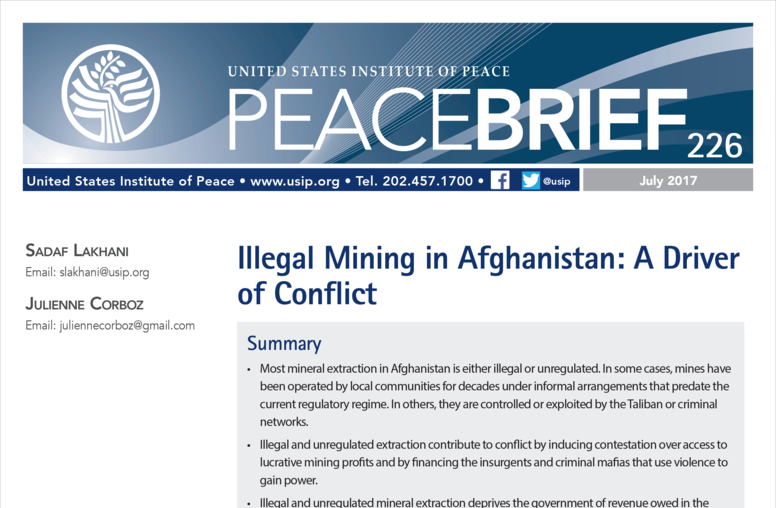
Illegal Extraction of Minerals as a Driver of Conflict in Afghanistan
Based on qualitative surveys and focus group discussions with communities in four Afghan provinces, this Peace Brief analyzes how nonstate actor control over small-scale mining sites and illegal extraction contributes to conflict, the local political economy, and the incentive structures that support illegal extraction.
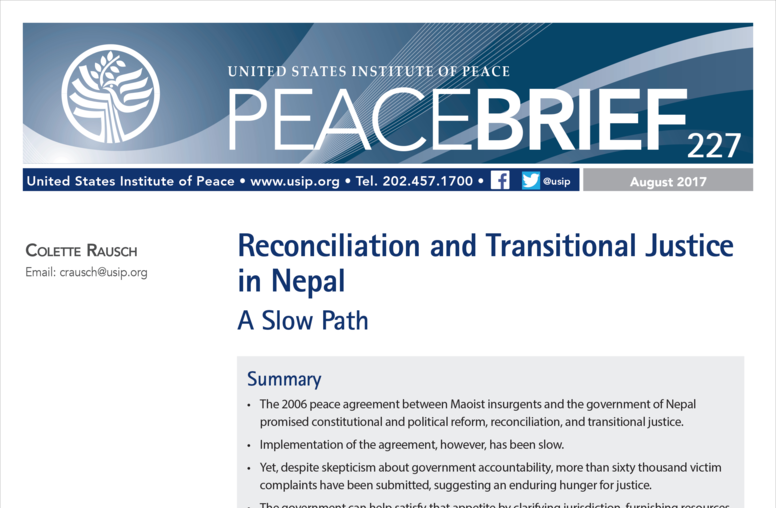
Reconciliation and Transitional Justice in Nepal: A Slow Path
In 2006, the government of Nepal and Maoist insurgents brokered the end of a ten-year civil war that had killed thousands and displaced hundreds of thousands. The ensuing Comprehensive Peace Agreement laid out a path to peace and ushered in a coalition government. Nepal’s people were eager to see the fighting end. Their political leaders, however...
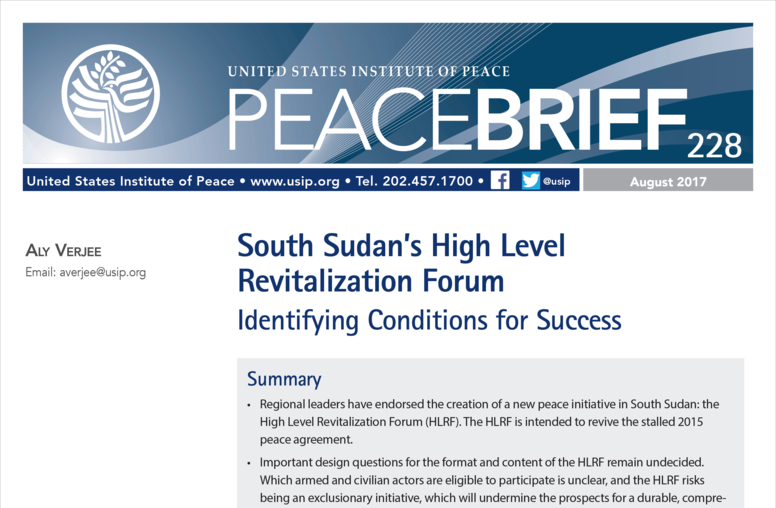
South Sudan’s High Level Revitalization Forum
Regional leaders have endorsed the creation of a new peace initiative in South Sudan: the High Level Revitalization Forum (HLRF). The HLRF is intended to revive the stalled 2015 peace agreement in the country. This Peace Brief offers recommendations...
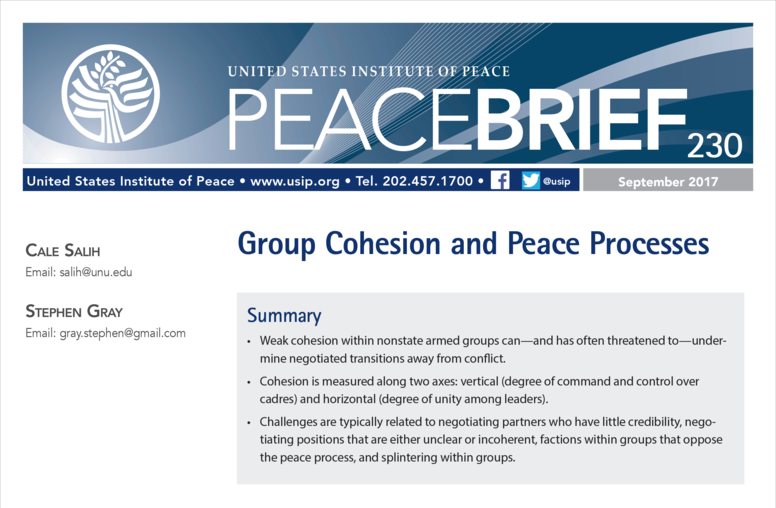
Group Cohesion and Peace Processes
Drawing on a wide range of cases, including Burma, Colombia, Senegal, and Uganda, this Peace Brief discusses the internal cohesion of nonstate armed groups, explains how weak cohesion can undermine a peace process, and offers various strategies that those supporting peace processes can deploy to mitigate such risks.
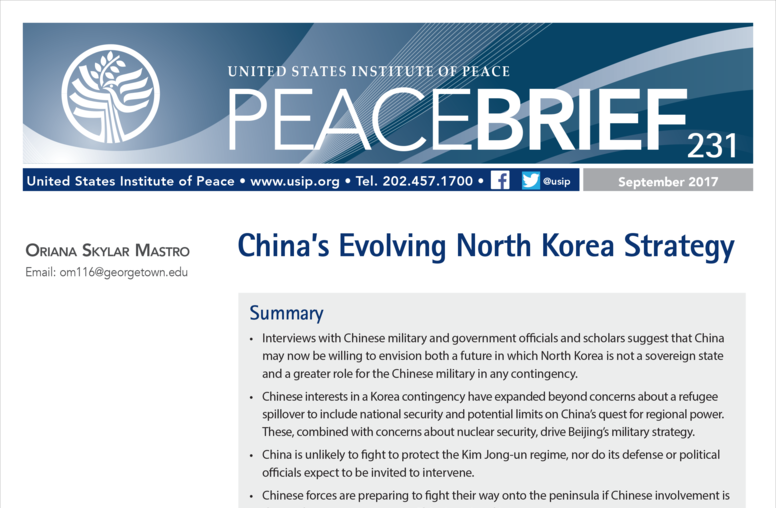
China’s Evolving North Korea Strategy
Despite Pyongyang’s recent ballistic missile and nuclear activity and threats, Beijing continues to resist US requests to apply greater economic pressure on North Korea. This measured response aside, nuanced but highly significant changes in China’s thinking on North Korea are clear. China may now be willing to envision both a future in which North Korea is not a sovereign state and a greater role for the Chinese military in any contingency. This Peace Brief reviews this thinking as well as potential Chinese motivations to intervene militarily in a Korea contingency and the implications for US policy.